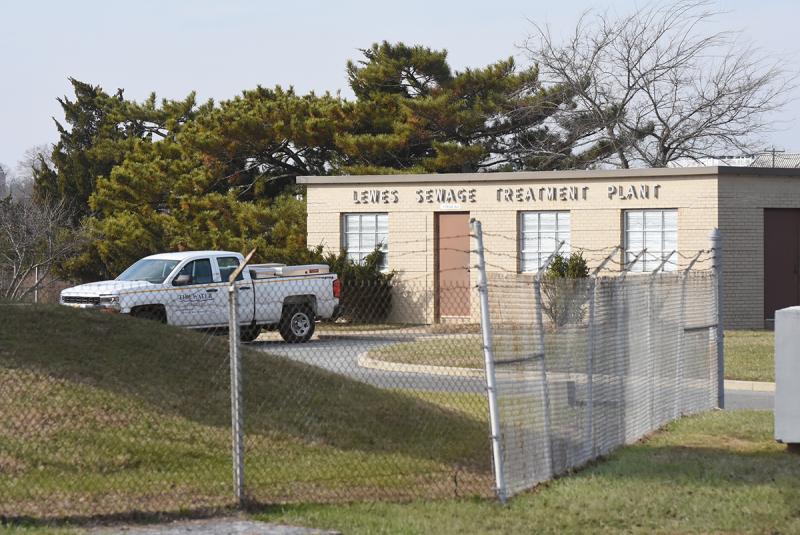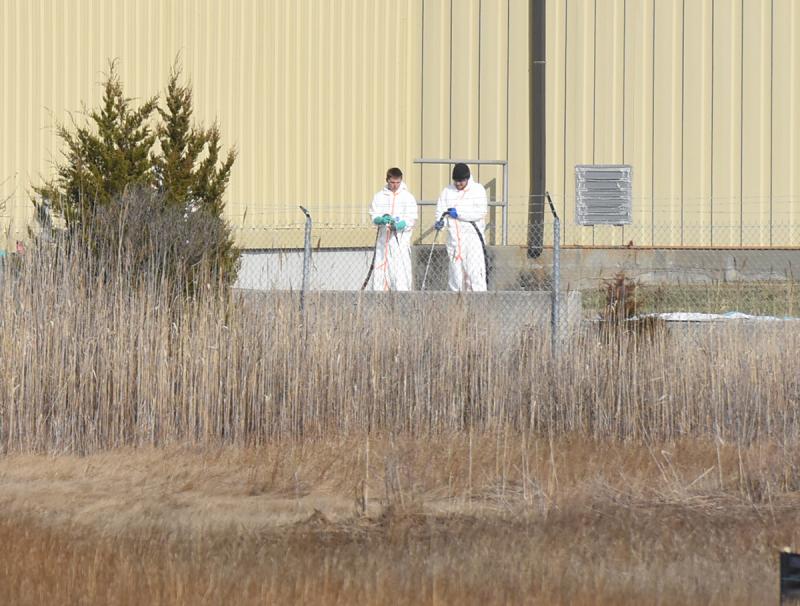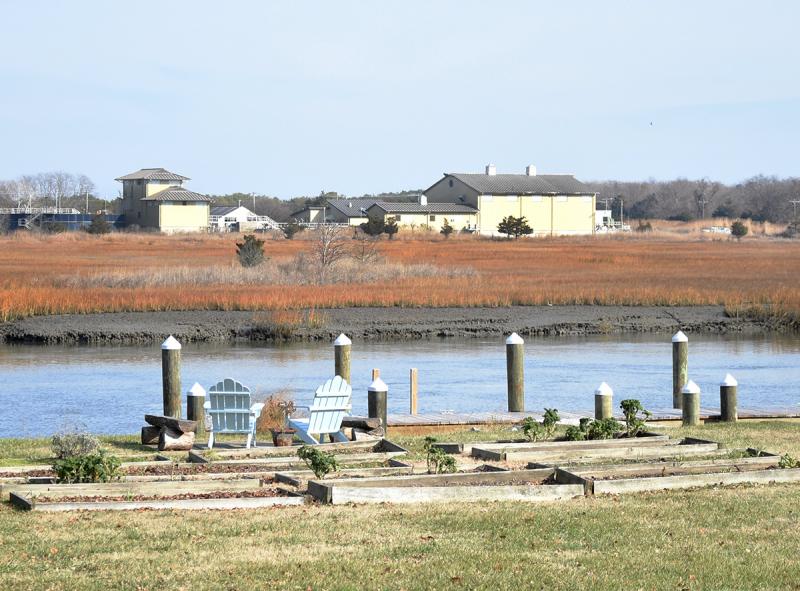Crews from Tidewater Utilities are working around the clock to fix a problem at the Lewes wastewater treatment plant that has resulted in partially treated wastewater entering the Lewes-Rehoboth Canal.
White Marsh Environmental Services, an affiliate of Tidewater, operates the Lewes Board of Public Works’ plant on American Legion Road. BPW President Pres Lee said he was notified of a malfunction at the plant Dec. 19, forcing two of the plant’s four filter troughs out of service. He said only one trough is required to treat wastewater in the off season.
The BPW was told the issue was minor and should’ve been fixed within 12 hours. An accident at the plant Dec. 21 alerted BPW officials to the fact that the problem had not yet been fixed, Lee said.
At some point, he said, another part of the filtering process malfunctioned, allowing dirty water into the system and forcing all four filter troughs out of service.
“We don’t know if a meter failed or a control panel failed, but somehow what was supposed to be clean water was dirty,” he said. “We weren’t aware of how serious the problem was until [Dec. 23].”
Lee said raw sewage is not entering the canal. He said the wastewater is being diverted to tanks where it can settle. It’s then disinfected to reach an acceptable level of bacteria kill before being charged into the wetlands instead of the canal. The process does not reduce nutrient and organic levels, but Lee said the wetlands will help filter those.
As of Dec. 24, Tidewater employees were on site manually cleaning filters.
“I’m thinking it should take another week to get everything up and running if we use all the existing filters,” he said.
Lee asked Tidewater to work expeditiously, even through Christmas.
The BPW has also ordered new filters from Canada, which could arrive as soon as Friday, Dec. 27. He said it should take about a day to install them. They ordered enough filters to replace one filter trough.
Mayor Ted Becker said the city and BPW are working cooperatively to resolve the issue. He asked that residents reduce water usage as much as possible while the issue is repaired.
“We’re asking people to help us with the process of repair,” he said. “Work will go on through the holiday. They will not be stopping.”
Becker said there is no problem with the drinking water.
Lee said water conservation is aimed at reducing the flow that has to be managed and discharged at the plant.
The BPW has also stopped receiving wastewater from Sussex County’s system while repairs are ongoing. The BPW and county have an agreement that allows up to 300,000 gallons of wastewater to flow from the county to the BPW’s system.
As a result of Lewes’ situation, Department of Natural Resources and Environmental Control Secretary Shawn M. Garvin has issued an emergency shellfish closure order for harvest areas downstream of the plant. Discharge from the plant primarily flows to the Delaware Bay. The shellfish harvest closure affects the lower Delaware Bay, from the Mispillion River Inlet south to The Point at Cape Henlopen State Park, and Delaware jurisdictional waters east to the New Jersey state line in the Delaware Bay.
DNREC’s Surface Water Discharges Section was on site Dec. 20 to observe conditions at the Lewes plant and White Marsh’s efforts to remedy the system malfunction.
DNREC has ordered the Lewes plant perform enhanced monitoring of effluent as well as upstream and downstream monitoring of discharge in the canal. In an abundance of caution while the bypass continues, DNREC advises area residents and recreationalists not to use the canal from one mile southeast of the Lewes plant out through Roosevelt Inlet.
The closure of shellfish harvest areas will continue for a 21-day period after the situation has ended and the Lewes wastewater treatment plant effluent meets required discharge standards. Rehoboth Bay was determined not to have been impacted by Lewes wastewater discharge after previous studies by DNREC concluded that the net flow of effluent from the Lewes plant enters Delaware Bay, but not the state’s Inland Bays. The temporary closure announced by DNREC applies only to clams, oysters and mussels. Crabs, conch and fish species are not affected.
In assessing the ongoing bypass situation, DNREC’s Delaware Shellfish Program said that “based on location of the event, commercial oyster beds will not be impacted,” and that the impact “will primarily affect recreational shellfish harvesters near the Cape Henlopen Fishing Pier, and a very limited commercial harvest of dredge clams in an area where no landings of these clams have occurred for several years.”
Nick Roth is the news editor. He has been with the Cape Gazette since 2012, previously covering town beats in Milton and Lewes. In addition to serving on the editorial board and handling page layout, Nick is responsible for the weekly Delaware History in Photographs feature and enjoys writing stories about the Cape Region’s history. Prior to the Cape Gazette, Nick worked for the Delmarva Media Group, including the Delaware Wave, Delaware Coast Press and Salisbury Daily Times. He also contributed to The News Journal. Originally from Boyertown, Pa., Nick attended Shippensburg University in central Pennsylvania, graduating in 2007 with a bachelor’s degree in journalism. He’s won several MDDC awards during his career for both writing and photography. In his free time, he enjoys golfing, going to the beach with his family and cheering for Philadelphia sports teams.
























































